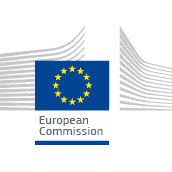
Strengthening the administrative capacities for implementation of Waste Framework Directive (WFD) and Special Waste Streams Directives (WEEED, WBAD and WPD) (MK 12 IB EN 02)
Deadline: Mar 29, 2016
CALL EXPIRED
CALL EXPIRED
Raw Materials
Environment
Waste Management
Environmental protection
Water Resource Management
Overall Objective (s):
The project purpose is to further approximate and implement the environmental acquis, through strengthening the administrative capacities for environmental management on central and local level in the field of waste management.
Project purpose
The project purpose is to strengthen the administrative capacity and undertake measures for implementation of Waste Framework Directive (WFD) and Special Waste Streams Directives (WEEED, WBAD and PPWD) through further development of implementation of the legislation and provision of trainings.
Contribution to National Development Plan/Cooperation agreement/Association Agreement/Action Plan
The Accession Partnership, in its Chapter 27 stipulates its short-term goals:
-
- Continue legislative alignment with the acquis, in particular in the fields of air quality, waste management and water quality, and improve significantly implementation of legislation and environmental monitoring;
-
- Strengthen administrative capacity at national and local levels and improve coordination between administrative bodies in charge of environment-related issues.
-
- As stipulated in the MIPD 2011-2013, the environment protection and nature conservation are recognised as fundamental constitutional values and everyone bears the responsibility for their protection and improvement. In addition, the MIPD 2011-2013 recognizes that climate change presents considerable challenge for the country, but also
the opportunity to pursue a low-carbon development path, which in turn will help realize sustainable development in the country.
- The project will contribute towards the implementation of the Stabilisation and Association Agreement, Article 80 on economic and social policies ensuring that environmental considerations are also fully incorporated from the outset, Article 68 on legal approximation, Articles 85 and 98 on ensuring environmental protection, and Article 103 (Environment and nuclear safety, point 2, line 1, and line 10) on combating environmental degradation, with the view to supporting environmental sustainability.
Link with MIPD
The objective for the environment sector in the MIPD 2011-2013 is to support further approximation and implementation of the environmental acquis, through strengthening the administrative capacities for environmental management on central and local level in the fields of water management, waste management, nature protection, air management and climate change. The aim of the proposed project is to acquire the lessons learned from an EU Member State through a twinning mechanism.
One of the Strategic assertion in the MIPD is contribution of the contracts related to Environment will be the strengthening of the administrative capacities in the prioritised sectors on central and local level, thereby contributing to the improvement of environmental management and implementation of legislation. Improved capacities for implementation of environmental legislation and introduction of environmental standards will positively impact the overall sustainability of development in the country, while the improved capacities to develop EU compliant legislation and regulations will have a positive impact on the EU accession process. It is expected that strengthening the public administration on local level will improve the capacity to solve local problems and disputes on local level instead of approaching central administration.
The expected results in the MIPD include:
- The administrative capacity for implementation of Waste Framework Directive through further development of implementing legislation strengthened, trainings provided.
- The administrative capacity strengthened and measures for implementation of the legislation on waste from electrical and electronic equipment undertaken.
Link with national/ sectorial investment plans
The project contributes to the realisation of the following key strategies and action plans in the sector:
− National Waste Management Strategy 2008-2020;
− National Waste Management Plan 2009 – 2015;
− National Strategy for Sustainable Development 2010-2030;
- National Programme for WEEE management (2013-2018);
- Plan for WEEE management (2013-2020)
- Programme for Packaging Waste Management (2011 - 2015);
− Second National communication on Climate Change;
− Plan for Institutional Development of the National and Local Environmental Management Capacity 2009-2014;
− Strategy on Improvement of Energy Efficiency until 2020;
− National Strategy for Environmental Approximation;
− National Environmental Investment Strategy 2009-2013;
Furthermore, as part of the Horizontal Legislation Part, the key priorities in the upcoming period include:
-
- Comparative analysis of the legislation existing in the field of waste management in relation to the new Waste Management Directive 2008/98 and Regulation 333/2011 and preparation of a new Law on Waste Management.
-
- Developing RIA for the new legislation.
-
- Strengthening the administrative capacities for implementation and enforcement of the national legislation regarding the waste from electrical and electronical equipment, packaging, batteries and accumulators;
Public link: Only for registered users
 EU Aid Volunteers
EU Aid Volunteers
Please Log In to See This Section